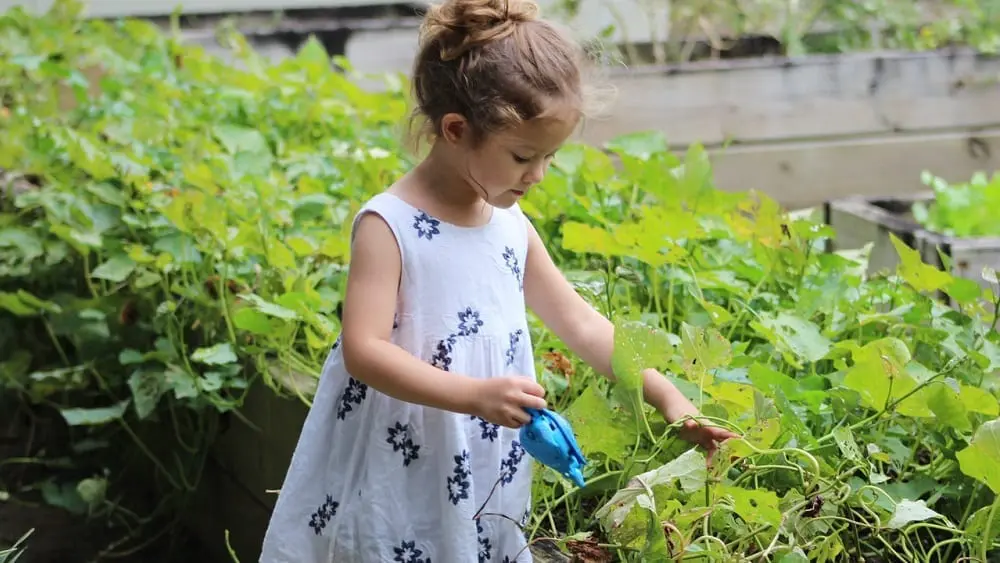
Ready to show off a green thumb at your new home? Planting a garden has many benefits from boosting mental health to increasing productivity. Spending time with the earth to enjoy its bountiful fruits and flowers while nourishing your own soul through nature is an incredibly restorative and invigorating practice.
If you’re new to gardening, there are a few decisions to make upfront. First, you must consider the space available for your garden. For instance, a vegetable garden requires more space, so a single-family home with an adequate yard may be more appropriate than a condo or townhome. Secondly, you should think about how much time you are willing or able to dedicate to the planting and managing of the garden over time.
With these answers in mind, you can then consider which type of garden you want to cultivate: a flower garden, a vegetable garden, or an herb garden. Or you could plant a combination of these. Planting across different species has shown incredible benefits not only for plant growth over time, but also for potentially boosting soil nutrients, which can revitalize your garden in new ways.
As you start planning your bountiful green space, here are a few pros and cons to consider when planting a flower, vegetable, or herb garden.
Flower Garden
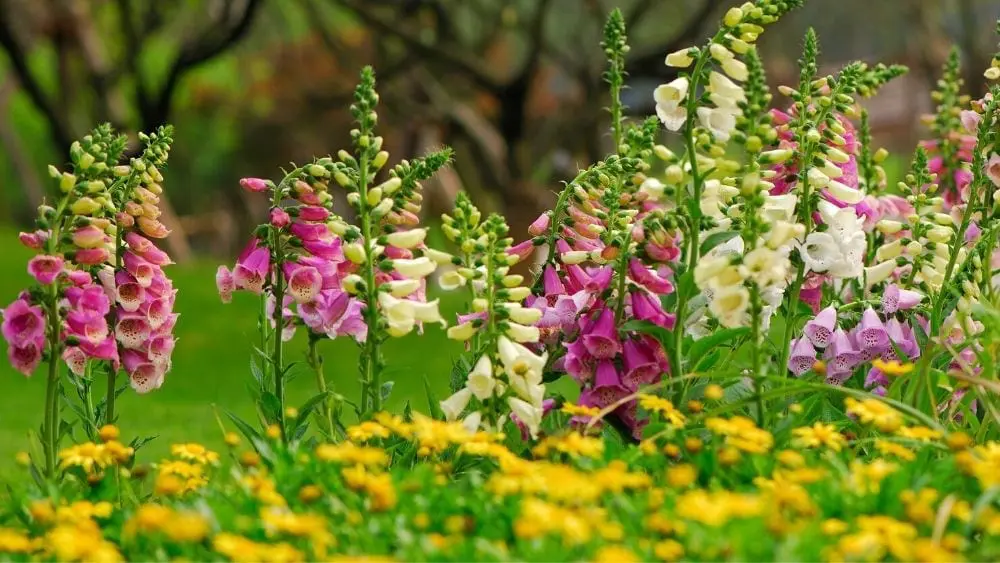
Flower gardens, though mostly ornamental, serve a strong aesthetic purpose. If planned well, flower gardens have the potential to increase the value of your home by drawing attention to certain areas of your yard with their beautiful blooms. They also bring an opportunity to involve the whole family in taking care of the garden.
Pro: Gorgeous Aesthetic
Flower gardens typically are positioned in high-profile spots in the yard. These are usually in the front yard or along the sides of the home so the flowers are visible to passersby who will then stop to admire your home and garden. However, a lovely backyard flower garden is also beautiful and private, making it the perfect quiet sanctuary for a peaceful evening or morning retreat.
Pro: Attracts Pollinators
Flowers, particularly brightly colored spring and summer blooms, attract bees and the like to spread their pollen and fertilize the garden. Some flowers also attract butterflies, who come to rest on their soft petals from time to time. Homeowners that enjoy viewing these tiny fliers as they do the essential work of pollinating the garden and encouraging new growth will love a vibrant flower garden.
Pro: Good for Small Spaces
Compared to a vegetable garden, a flower garden needs relatively little space. It does not require a patch for various sizes of vegetables to grow, so flowering plants can be used to cover a smaller area. However, be careful of the plant species you purchase, as some like daisies can become invasive and take over your small space quickly. Therefore, regular maintenance such as weeding and cutting back any overgrowth is necessary in some flower gardens.
Con: No Produce to Enjoy
The biggest drawback of a flower garden in comparison to a vegetable or herb garden is the lack of produce at the end of the production. Flower gardens offer little return for your efforts outside of looking aesthetically pleasing and showing off your green thumb.
Con: Severe Allergies
If you have severe allergies, then a flower garden might not be the best option for you. An ample amount of pollen will dance around and into your sinuses the second you walk out your front door, leading to a whole host of unpleasant symptoms. Not to mention, planting and maintenance will be a challenge as those spores tickle your nose, so you might spend more to hire a gardener or have a family member tend to your flower garden if your allergies are too severe.
Con: Annuals vs. Perennials
One big decision is choosing between annuals and perennials. Annual flowers will bloom for one season and must be replaced each year, but perennials will come back every spring or summer to be enjoyed for many years.
Annuals allow you to change your garden each year so you can spice up your landscape design based on a new color scheme. This can also aid the soil in replenishing its nutrients through different plants. But you will have to buy new plants each year, which can be a hefty expense every spring.
Perennials ensure that you do not have to go through the process of planning and growing a new landscape every year, and instead will grow back every spring so that you can wake up to beautiful new flowers with the season change. However, if you get tired of the same look each year, you’ll have to dig up the old when you want to try a new color or flower in a different season.
However, you don’t have to strictly choose either/or here, as you can plant both annuals and perennials in the same garden for plenty of variety.
Vegetable Garden
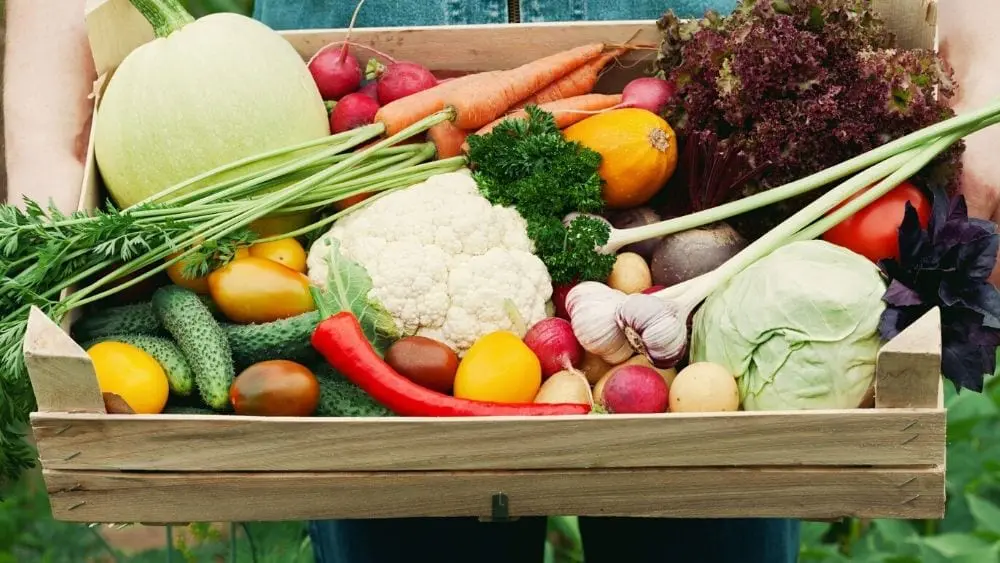
If you enjoy growing your own produce in an organic or farm-to-table lifestyle and have the space to do so, then a vegetable garden may be the perfect choice for you. Vegetable gardens offer the freshest opportunities for feeding your family without subjecting them to potentially dangerous chemicals and pesticides. When you grow your own food, you know exactly what you are putting into your body. They are a great tool for empowering families to live healthier lives and spend time together.
Pro: Fresh Crops
The biggest reason for growing a vegetable garden is, of course, fresh veggies. Imagine being able to pick your own produce from your backyard to make a fresh salad for lunch every day. It’s a great way to ensure your body receives healthy nutrients daily, and especially for your kids with their growing bodies that require tons of natural vitamins and minerals. Just be sure to rotate your crops every year or two to ensure that the soil is replenished with adequate nutrients and does not become depleted over time. This will help your vegetables to continue to thrive every year.
Pro: Educational Family Opportunities
A big bonus for families, especially those with young children, is the educational opportunities to teach children how to grow their own food. This is empowering for family members young and old as they learn more about a meaningful way to engage with the earth and honor its incredible ability to produce delicious and healthy foods. You can easily get the kids involved in taking care of the garden and picking ripe produce — and they get to enjoy the results of their hard work by eating those fresh fruits and vegetables.
Con: Takes Up Space, Time, and Energy
Depending on what and how much you plant, a vegetable garden may take up much more space compared to a flower garden. Plus it takes a lot of time and energy to plant, grow, and manage a vegetable garden. It is certainly a commitment, but the benefits are so great that you won’t often see it as a chore to care for the garden. It can be exciting to plant, water, and anticipate the first vegetable blooms. There is also a lot of evidence showing that gardening as a hobby can provide a boost to your mental health as well as increase certain vitamins that the human body receives while being outside in the sunshine and fresh air. And, if you get the whole family involved, many hands make for a lighter load (and more fun!).
Con: Requires Protection From Pests
You should be aware of a vegetable garden’s propensity to attract pests of all sizes, including everything from insects to rabbits. It is critical to protect your vegetable garden from these pesky critters before you wake up one morning to your greens being entirely eaten up by small creatures. The local hardware store will be able to set you up with the best option for your plants and the size of your garden. They might recommend a wire mesh to cover plants or a raised garden bed to elevate your plants off the ground and away from pests.
Herb Garden
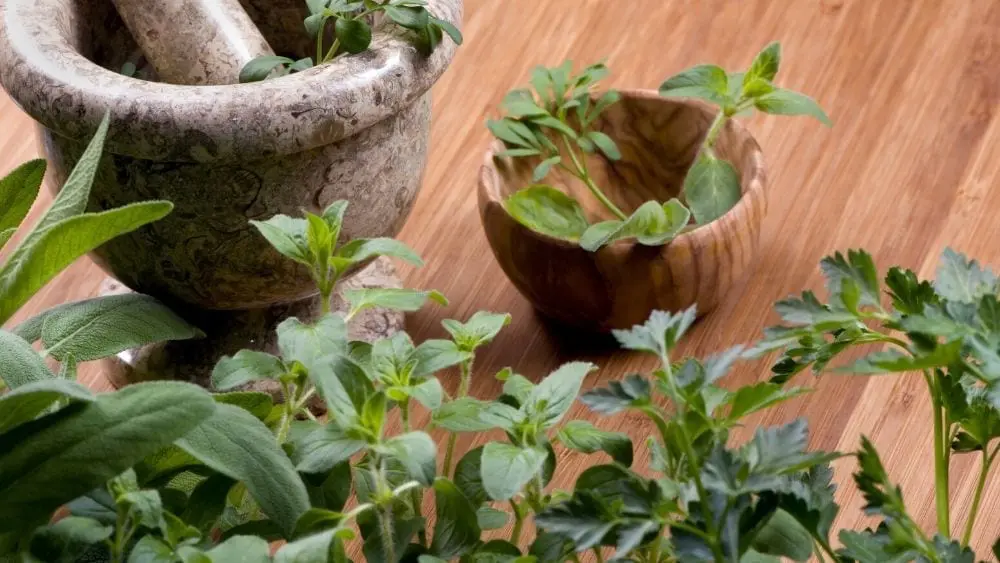
Often overlooked in comparison to its more popular cousins, the herb garden is equally as interesting and fun as a vegetable or flower garden, but it may be smaller and more easily managed. Herbs are a great starter for someone trying their hand at gardening for the first time. Depending on where you live, an herb garden is usually more inclined to grow outside in partial sun (though some herbs enjoy full sun in the warmer months).
Pro: Ideal for Tiny Living Spaces
Herb gardens are especially well suited for condos and apartments. Balconies and patios can be spruced up with a hanging herb garden, a window box, or a leaning trellis with planters. Herbs usually prefer to grow in partial sun (though some herbs enjoy full sun in the warmer months, depending on where you live), so ensure that your garden gets at least partial sun, preferably in the morning to provide the optimal conditions for your plants to grow and thrive.
Pro: Elevated Cooking With Incredible Flavor
Five-star chefs have adopted the practice of growing fresh herbs for the same reasons you should. Fresh herbs and spices will elevate your dishes in a way that can only be experienced. Bold and zesty flavors meet sweet and savory combinations to make you question why you ever dined out in the first place. When you deepen your love for fresh home-cooked meals, you will also save money in the long term by replacing takeout dinners with easier healthy options that taste just as delicious, if not better, than those from a restaurant.
Con: Can Be Invasive
Herbs grown all together in a large pot or wide planter should be placed carefully. Certain herb species, such as most mint varieties, can become invasive and take over the planter. However, if done artfully and with specific plant behaviors in mind, planting varieties of the same herb species together, such as different basil varieties, can create new and interesting flavors of herbs through cross-pollination. If you prefer to avoid this, plant your herbs in individual planters.
Con: Sensitive to Temperature Changes
Depending on where you live and your USDA plant hardiness zone, some herbs may be difficult to grow outside when the temperature drops and the sun is present for fewer hours in the day. When the seasons change, you might consider bringing your herb garden inside and utilizing a plant light to continue growing them away from the elements.
Mix and Match
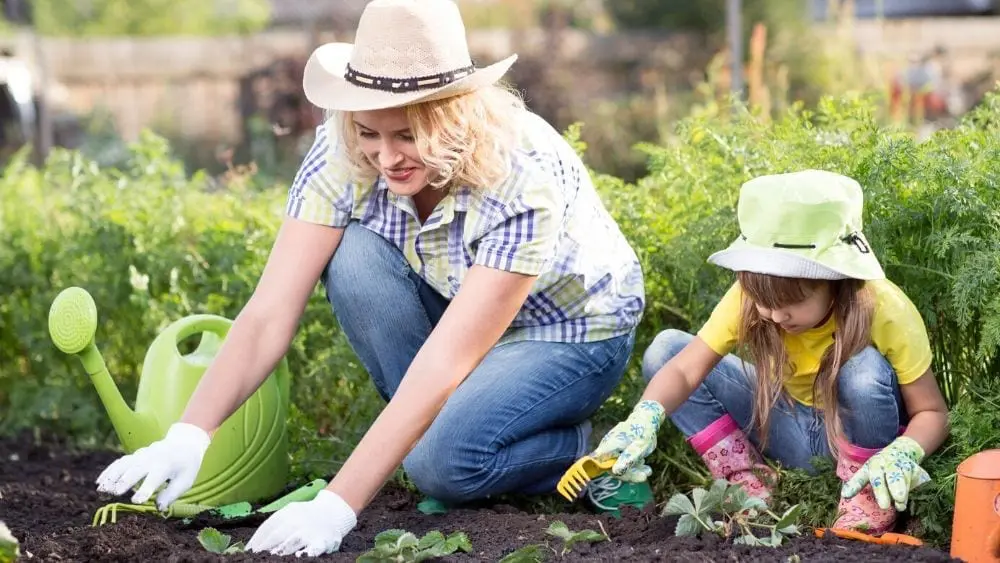
If you don’t want only one type of garden, you can absolutely plant a combination of flowers, vegetables, and herbs. Flowers can often attract more pollinators to the vegetable garden to help it thrive while also bringing beneficial critters such as ladybugs to defend your produce. Plus, it never hurts to add a pop of color to your plentiful green veggies for an aesthetic appeal.
No matter what you choose, it’s impossible to go wrong when planting a fresh garden outside your new home. As you get started, consult New Home Source for other articles about gardening in your new home. Before you know it, you’ll be enjoying the many fruits and flowers of your labor with a stunning outdoor garden.

Melanie Theriault is a writer, counselor, and lifelong learner. She holds a B.A. in Sociology from Southwestern University, where she discovered her passion for fostering human connection through storytelling.
 9 Key Upgrades for Investment Properties
9 Key Upgrades for Investment Properties